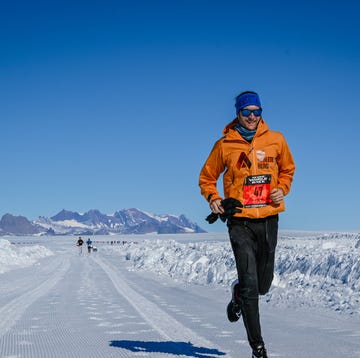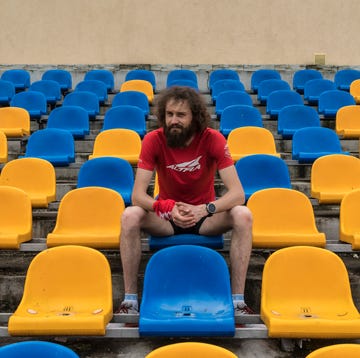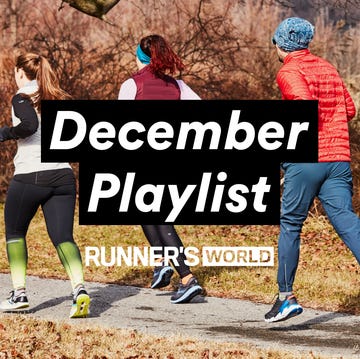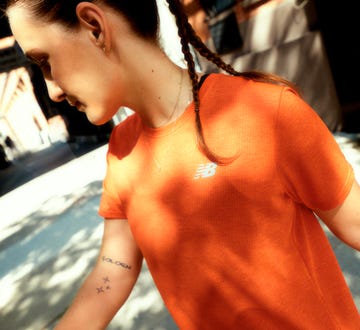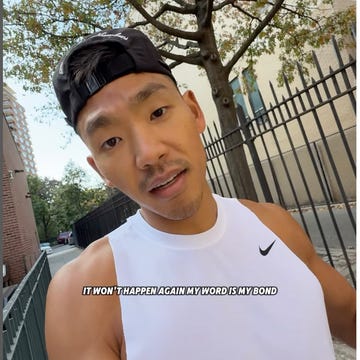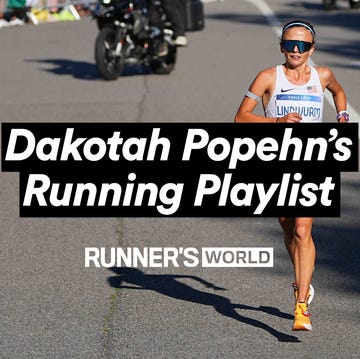Advertisement - Continue Reading Below cold at bay one December night in 2022, my friend Justine and I got together for some mulled wine, a hot drink as delicious as it is sentimental to me, reminding me of holiday gatherings and Christmas markets back home in the Czech Republic. As the familiar sweet smell of star anise, cloves, cinnamon, and lemon filled my apartment, I declared out loud (more to myself than to Justine) that I had a 10-mile run on my training plan the next day, so I needed to take the night easy.
How Des Linden Keeps Showing Up rested and hydrated. Gradually, but surely headache, just to helplessly stare at the ceiling until falling back asleep sometime in the early morning hours, swearing to myself I would never drink again. Tale as old as time.
I first came home drunk when I was 15. My parents didn’t notice. It was the year they were splitting. Their arguments were quiet, but the consequences spoke volumes. Money had become a point of contention at one point, and I was withdrawn from after-school activities, including basketball and the majority of my dance classes. I didn’t know what to do with myself. So when a clique I had been seeing around my hometown invited me to hang out with them, I was happy for some distraction from my newly gained free time as much as the silent war at home. They were the cool kids, which meant I was cool now, too! They drank cheap boxed wine any night—school or weekend—they could pull enough money together. They came from divorced or one-parent families. No one was waiting for them to come home either. I felt understood. And so when the boxed wine made its round to me, I took a swig, and then another one. I despised the taste, but that didn’t matter; I belonged.
How Des Linden Keeps Showing Up alcohol The Runners World Guide to Mental Health smoking my lungs away, often coming home just as the sun was making its way into the sky, unable to piece together the full night from the tidbits I remembered. By 20, I could outdrink almost everyone in the group.
Advertisement - Continue Reading Below was also when I moved to the U.S. In a matter of a single flight over the Atlantic, I became underage again, entering a much stricter country that wouldn’t allow me to even go to a bar. And I had to quit smoking because the host family I moved in with wouldn’t tolerate it. With no substance to help me escape my racing mind, I had my first panic attack. One piece of advice I received was to try exercise. Willing to do anything that would help prevent another similar episode, I bought a pair of cheap workout shoes and a YMCA membership. I found my way to the treadmill because it seemed to me the least intimidating equipment at the gym. To my surprise, I enjoyed it.
But old habits are hard to shake, and I eventually turned 21. Although running was great, I felt no obligation to do it. So what if I skipped a day at the gym because of drinking the night away? I had fun, didn’t I? That’s what I told myself for the next nine years, while my hangovers At age 20.
So not being able to get out for a run on that sleep-deprived, heavy-headed morning after the mulled wine episode wasn’t that unusual. But this time, something shifted. Instead of my typical “so what” attitude, I grew mad. I had a goal to achieve, and therefore something needed to change. I decided to cut out alcohol for the remainder of my training. I promised myself I would celebrate with a Moscow Mule, my favorite cocktail, after I finished my birthday challenge.
I got through Christmas and New Year’s Eve sober—something that hadn’t happened since I was 14—and in January 2023 I ran my 30K. But when the time came to order that celebratory drink, I wasn’t in the mood. It was about a week later, when my legs recovered and I went out for an easy run, that I realized I was far more looking forward to putting in the morning miles than having a drink in the evening. So I decided to wait to drink until I truly felt like having one. Over a year later, that moment still hasn’t come.
I first came, Advertisement - Continue Reading Below anxiety and stress in ways alcohol never truly did—that the benefits of running far outweigh whatever temporary numbness alcohol provided. I run a little faster on days my chest feels tight (and I entrust my invasive thoughts to my therapist instead of to alcohol).
This is not to bad-mouth booze and forget the fun times I surely had. I never planned to stop drinking completely, and somewhere down the line I might start over with alcohol in a healthier way. Who knows? For now, I’m much more excited about having a clear head, mornings with no hangover, and the miles I get to put in. For the first time in a long time, I can say I feel happy and in control of my life. Cheers to that!
From Runners World for New Balance Runner’s World, Bicycling, and Popular Mechanics since August 2021. When she doesn’t edit, she writes; when she doesn’t write, she reads or translates. In whatever time she has left, you can find her outside running, riding, or roller-skating to the beat of one of the many audiobooks on her TBL list.


